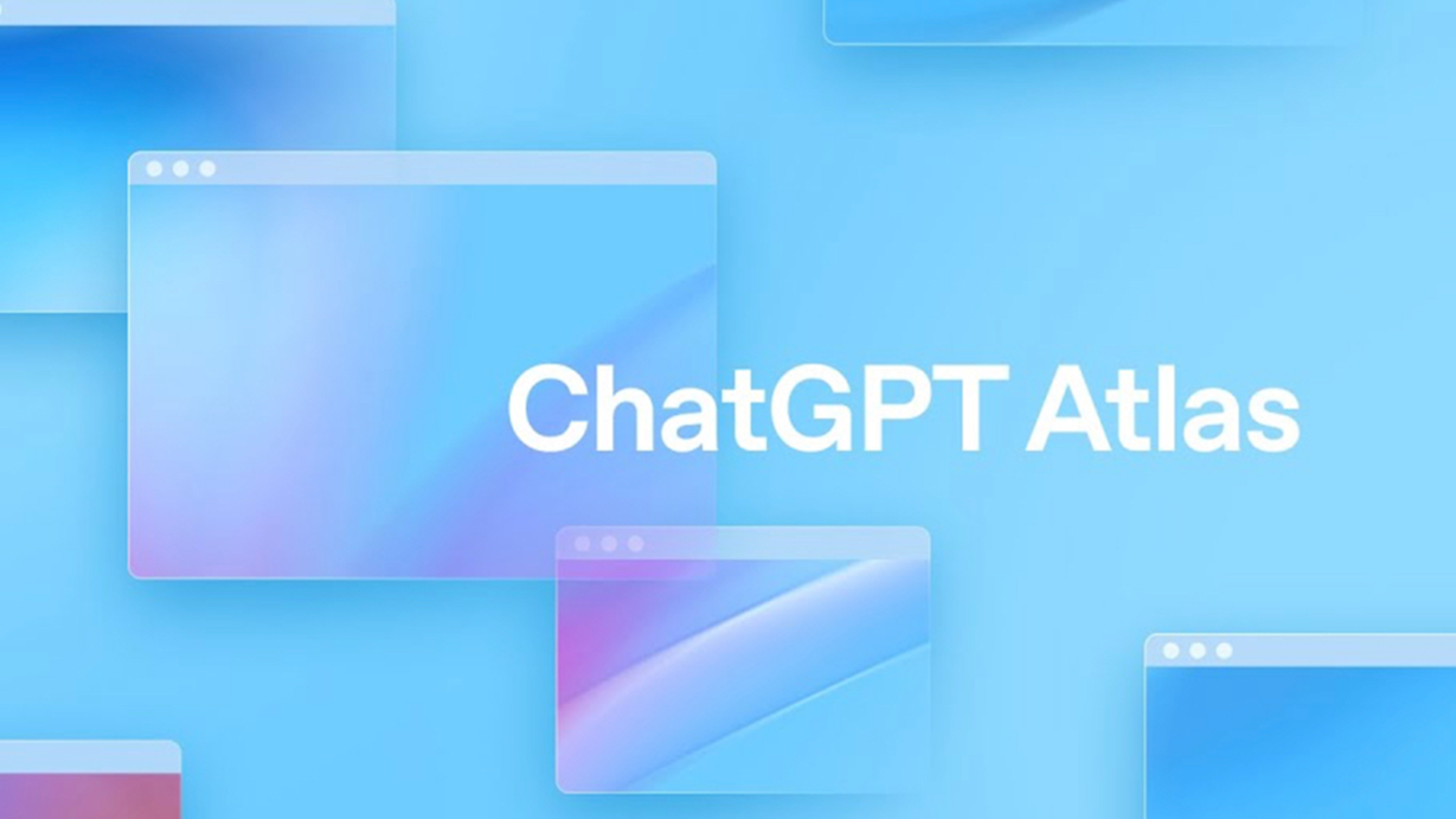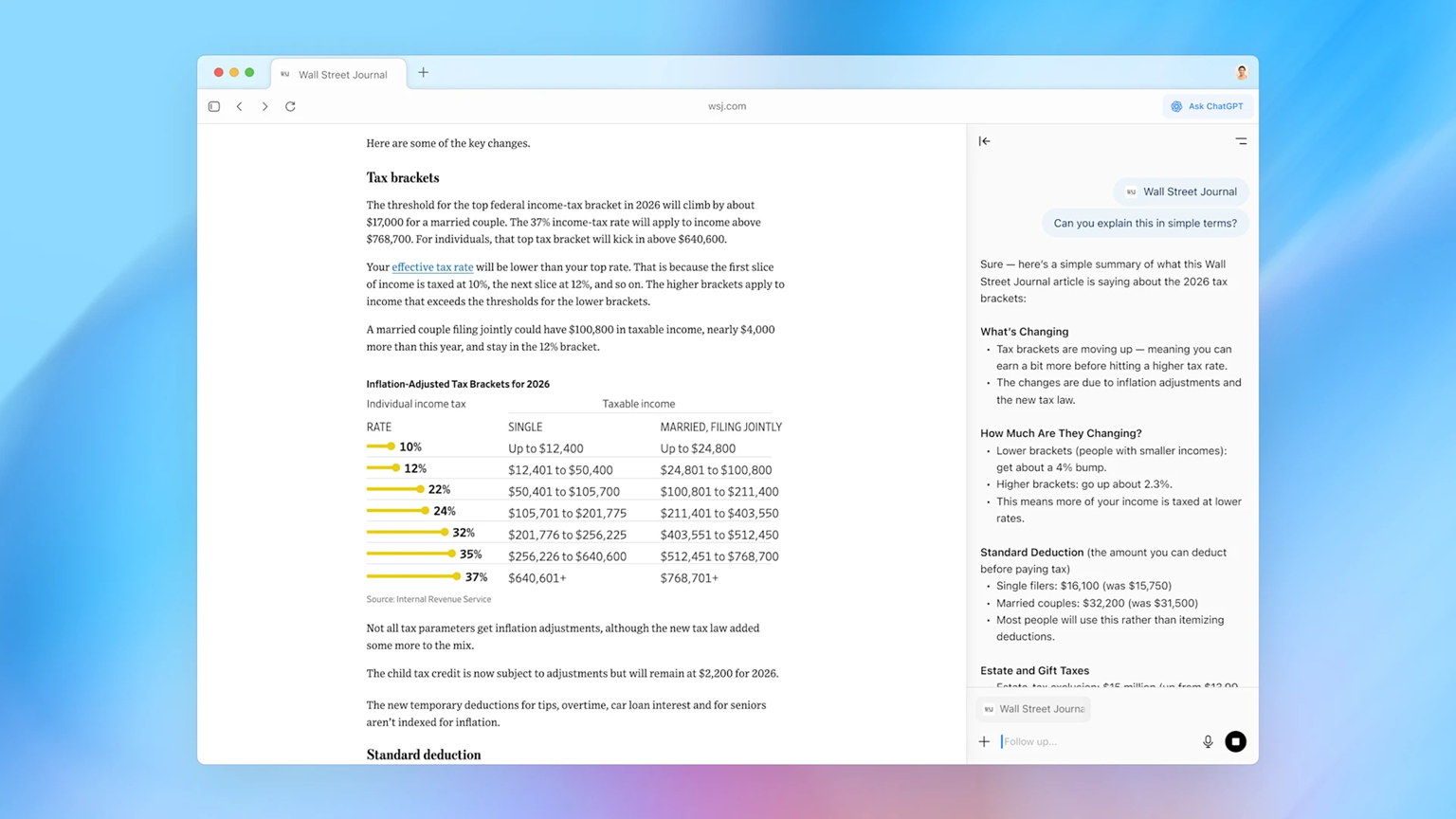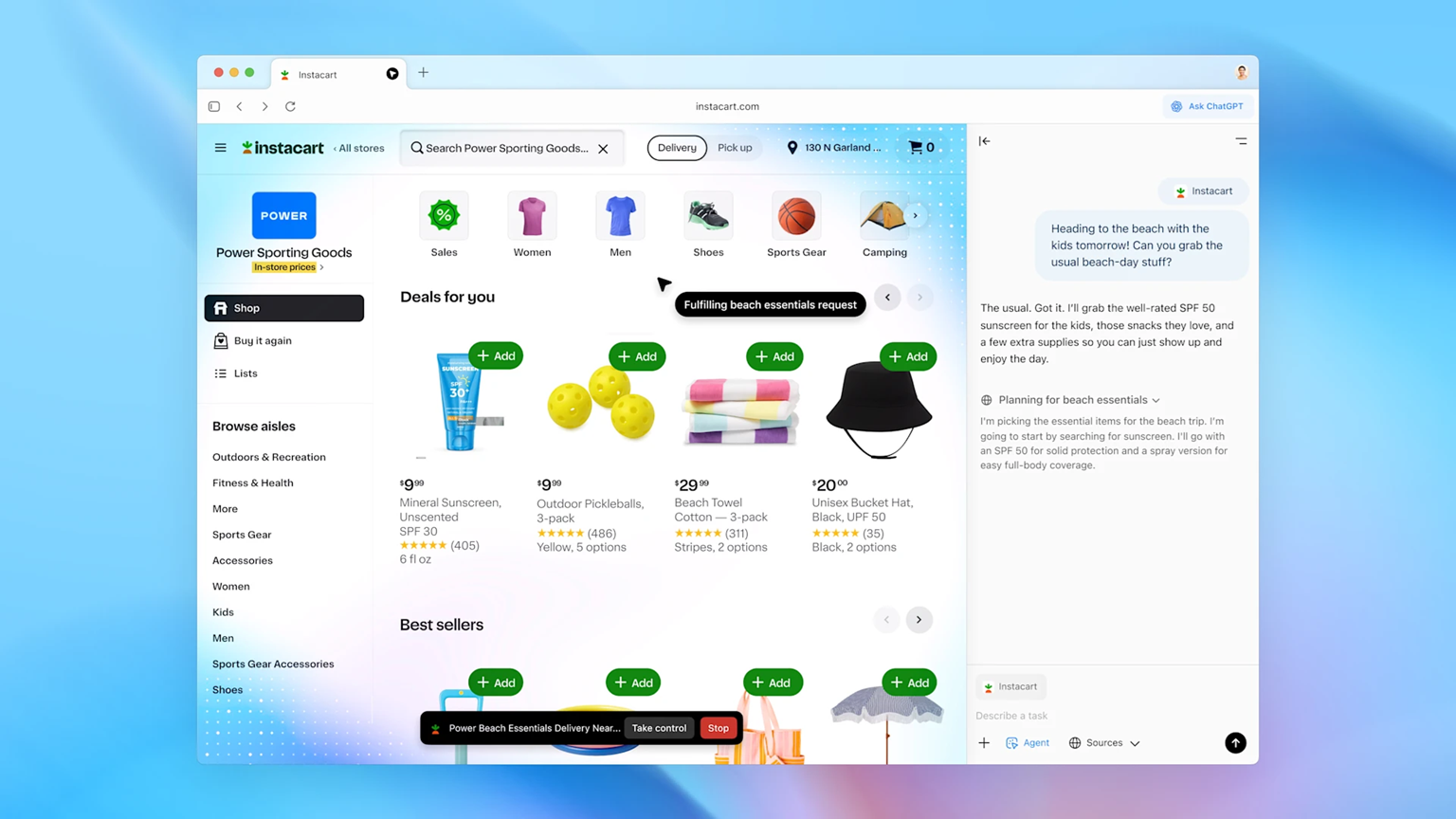5 big updates coming to the ChatGPT Atlas browser
The AI browser has a clearer, smoother, smarter future

OpenAI's new ChatGPT Atlas browser made a big splash with its AI-powered experience this week. But it only took a couple of days for Adam Fry, Atlas’s product lead, to share a “post-launch fix list” on X. The list covers features many power users expect from web browsers, along with upgrades to the AI side of things. It's a fairly substantial list, as you can see below, but some of the items are bigger than others and could make or break the success of Atlas as it competes with Chrome and more recent AI-powered rivals.
We've received incredible feedback since launching our new browser, ChatGPT Atlas, yesterday. We're really focused on building the best product for all of you, and since launch, the team has been heads down making it better. In the spirit of transparency, these are the very… pic.twitter.com/UzQSqcxwpjOctober 23, 2025
1. Tab groups and profiles
First on the list are the options to group tabs and switch between profiles. These are elements that many desktop browser users take for granted. Tab groups let you bundle related pages into one collapsible set, while switching profiles keeps bookmarks, history, and context separate.
Since many people have separate profiles for work and personal use, this is more than a perk; it's a necessity. For now, Atlas offers the basic Chrome experience, but lacks the fine control many might prefer for their tabs. If Atlas can handle that reliably, it reduces the browser chaos burden that many of us who open 50 tabs at a time deal with every day.
2. Shortcuts and bookmarks
Fry’s list mentions an “overflow bookmarks menu” and a shortcuts list. For users, that means you won’t have to scroll endlessly through bookmarks in the toolbar. Instead, the extras will roll into a neat overflow. And a shortcuts menu, as the name indicates, makes it faster to access frequently used functions, whether it's opening the chat sidebar, saving tabs, or launching the agent mode. This kind of UI polish isn't a big spectacle, but it helps make Atla more than just a demo. It’s the kind of tweak you don’t notice when it works, but definitely notice when it’s missing.
3. Sidebar enhancements

ChatGPT Atlas is a web browser, but it's the AI elements that give it real distinction. Fry specified that there will be upgrades to the sidebar where the AI assistant lives. Soon, you’ll see a model picker letting you choose which version of ChatGPT you want to interact with, as well as access to ChatGPT's Projects features.
The browser is also going to allow users to attach multiple tabs in the composer and clean up the “@mentions” to provide more and better context for your requests. That way, when you’re working across multiple browser tabs, maybe researching for an article or planning a trip, you can link several tabs into one task inside the sidebar, pick the model best for the task, and retain context via attachments.
It's a notable difference from some AI-browser experiments that are limited to a single chat window. Atlas’s promise is a more tightly integrated melding of browser and AI assistant, and you'll have to paste less into ChatGPT.
Sign up for breaking news, reviews, opinion, top tech deals, and more.
4. Speedy agents

The powerful Agent mode for ChatGPT Atlas enables the AI to open tabs, click buttons, fill out forms, and otherwise act on a user's behalf. Fry's list promises it will soon include quicker first replies and fewer missed triggers for action, while being better at waiting when it should, and smoother animation overall. Basically, you won't have to hover over the agent quite as much to make sure it performs as you wish.
5. Passwords saved, ads blocked
One of the more browser-specific items on Fry’s list might appeal most to casual users: an opt-in ad blocker and smoother handling of captive portals – the public Wi-Fi logins that can break a browser. Despite being designed around AI, Atlas launched without these niceties at first.
The list also included fixes for password manager integrations. By naming those explicitly, OpenAI seems to be responding to demands from people eager to use Atlas in every way they use their current browser. Fewer browser crashes are always a good selling point.
There are plenty of other items on Fry's list, too. They all hint at ambitious plans for apps inside Atlas and more integration with existing third-party apps and services. While Fry didn’t promise a particular timeline, the very fact of the announcement makes it clear that Atlas will change as quickly as possible and that OpenAI is listening. And if Atlas gains traction, everyone else, from Google Gemini to Opera Neon to Perplexity's Comet browser, must catch up.
Any major bugs in the upgrades will be an issue, though. Some users will remain wary of AI inside every tab due to privacy concerns, though the ad-blocker and profile support may help assuage that concern.
The average person might not care about the model architecture or the company strategy, but they do care about whether their browser works. These fixes show OpenAI is acknowledging that fact and adapting fast.
Follow TechRadar on Google News and add us as a preferred source to get our expert news, reviews, and opinion in your feeds. Make sure to click the Follow button!
And of course you can also follow TechRadar on TikTok for news, reviews, unboxings in video form, and get regular updates from us on WhatsApp too.
You might also like

Eric Hal Schwartz is a freelance writer for TechRadar with more than 15 years of experience covering the intersection of the world and technology. For the last five years, he served as head writer for Voicebot.ai and was on the leading edge of reporting on generative AI and large language models. He's since become an expert on the products of generative AI models, such as OpenAI’s ChatGPT, Anthropic’s Claude, Google Gemini, and every other synthetic media tool. His experience runs the gamut of media, including print, digital, broadcast, and live events. Now, he's continuing to tell the stories people want and need to hear about the rapidly evolving AI space and its impact on their lives. Eric is based in New York City.
You must confirm your public display name before commenting
Please logout and then login again, you will then be prompted to enter your display name.